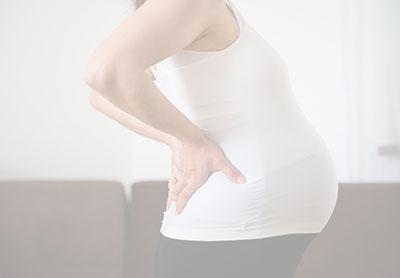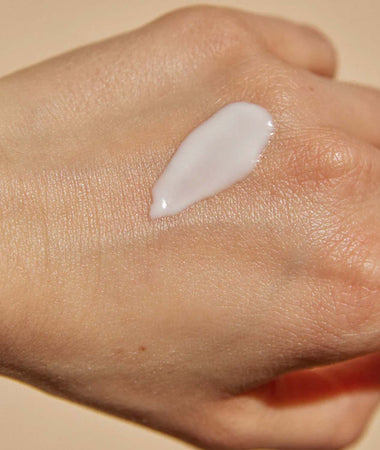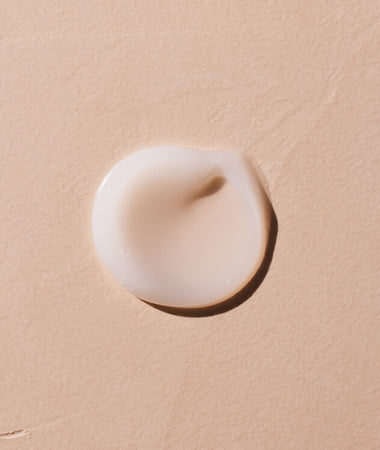
Discomfort During Pregnancy: Tips For Feeling Good While Pregnant
INTRODUCTION
During the nine months of your pregnancy, you will experience many changes throughout your body. Although it is a wonderful experience to feel a little human growing inside you, this period will also bring a multitude of little discomforts. You may not experience all of these discomforts, and their intensity will vary from one woman to another. If they are mild in your case, enjoy your good fortune and the freedom from worry. If, however, they are severe, there are some steps you can take to make yourself more comfortable. Take a look at the tips below!

FATIGUE
Feelings of intense fatigue are very common during the first trimester of pregnancy. It is caused mainly by the increase in progesterone, a hormone that has a sedative effect. It will disappear in the second trimester, but return in the third trimester due to the weight of the baby and the uterus.
Take care of yourself and get as much rest as possible: sleep at least eight hours and take naps whenever you can. Many companies allow their pregnant employees to reduce or modify their work hours beginning with the second trimester: check your workplace agreements to find out what your rights are!
NAUSEA
Nearly 50% of women experience nausea during their pregnancy. It generally appears a few weeks after conception and lasts until the end of the first trimester. In rarer cases, it can last longer, even until the birth. It is generally intense in the morning and then diminishes over the course of the day.
Pregnancy-related nausea is caused by the increase of certain hormones in the blood, in particular estrogen and chorionic gonadotropin or HCG, which is also known as the “pregnancy hormone". The nausea may lead to vomiting and is often very bothersome to expectant mothers. If you experience nausea, tell your doctor. He or she may prescribe medication to alleviate it. You may also wish to try acupuncture or homeopathic remedies.
At the same time, a few smart habits can help you reduce the nausea:
- Eat a small snack before getting up in the morning.
- Have something savory for breakfast, rather than sweet, if you feel like it.
- Avoid strong odors and flavors.
- Eat small, frequent meals throughout the day. Absorbing small quantities prevents dilation of the stomach, which means the stomach will not exert pressure against the organs around it and nausea is less likely to occur. Plan to have a snack every three hours rather than three large meals in a day.
- Eat only the foods that appeal to you.
- Include a starch (rice, pasta, bread, grains etc.), prepared as plainly as possible, with each meal.
- Drink carbonated water, or water infused with mint, especially in the morning before getting up.
- Avoid stress, which can aggravate digestive problems.
- Add fresh ginger to your dishes and chew on pieces of candied ginger: its anti-nausea properties are well known.
- Get as much rest as possible: fatigue can make nausea worse.
If your nausea is accompanied by severe vomiting on a daily basis and you are losing a lot of weight (more than 3 kg or 6.6 pounds), visit your gynecologist, who will examine you to determine whether these symptoms are caused by thyroid problems, and to ensure that you are not dehydrated.
ROUND LIGAMENT PAIN
From the beginning of pregnancy, you may feel an aching sensation around your uterus. This is completely normal – it is caused by the stretching of the round ligaments supporting your uterus, which must lengthen as the uterus grows.
Later, the hormones saturating the pelvic ligaments may also cause strong pulling sensations in the legs, groin, pubis or sides of the belly. You will feel these aches mainly when changing position or when standing, and they may sometimes make walking difficult. The aches will increase as the pregnancy progresses and tend to be stronger in a second or later pregnancy. To relieve the aching, rest and limit the time you spend standing as much as possible. You may also want to try acupuncture or homeopathic remedies.
STRETCH MARKS
During pregnancy, stretch marks may appear, caused by the combination of hormone changes and the rapid expansion of the skin. They usually form on the belly, breasts, buttocks, hips and upper thighs. To minimize the risk of stretch marks, try to limit your weight gain and, beginning in your first month, apply a product specially formulated for pregnancy stretch marks: the sooner and more regularly preventive measures are taken, the more satisfactory the results will be. Be especially careful if the women in your family (your mom and sisters) got stretch marks during their pregnancies.
CONSTIPATION
Pregnancy is often accompanied by a slowing of intestinal transit. Early in the pregnancy, it is linked to hormone changes that cause a certain laziness of the digestive tract. Then, as the pregnancy progresses, the uterus puts increasing pressure on the intestines, which also slows down their activity. Iron supplements, which are often prescribed during pregnancy, may cause severe constipation. Normal intestinal transit may not return until two to three months after the birth.
While already unpleasant itself, constipation can also lead to hemorrhoids: it is therefore important that you stimulate your intestinal transit. To do this, begin the day with a tall glass of orange juice, drink a lot of water, eat prunes and adopt a diet rich in fiber (fruit, vegetables, whole grains, bran etc.).You should also do a low-intensity physical activity (walking, swimming) on a daily basis. Finally, go to the bathroom without waiting as soon as you feel the need. If the symptoms persist or hemorrhoids appear, speak to your doctor about it at your next pregnancy check-up.
DRY SKIN AND ITCHING
Hormone variations can cause the epidermis to become dehydrated and dry during pregnancy. Moreover, changes in blood circulation and the stretching of your skin can sometimes cause irritation and itching sensations, especially on the belly.
To relieve these sensations, bathe with a mild, soap-free cleanser, avoid scrubbing your skin, and apply a specially-formulated moisturizing product to your entire body, morning and night.
If the itching spreads to other areas or even all over your body, tell your doctor because it could be caused by a liver problem.
PREGNANCY MASK
During pregnancy, some women develop brown splotches on their forehead and cheeks and above their upper lip: this is what is known as a “pregnancy mask” or chloasma, a hormone-induced hyperpigmentation that sometimes accompanies pregnancy. Women with dark hair are especially predisposed to this.
The only thing you can do to prevent it is stay out of the sun or apply a very strong sunscreen. If a pregnancy mask forms in spite of your efforts, you can take comfort in the fact that it most often fades by itself a few months after the birth. If it does not fade, visit a dermatologist, who can prescribe an effective treatment.
HEARTBURN
Heartburn and acid reflux are very common during the first trimester. They are particularly intense when you have just finished a meal, are lying down, or lean forward. Once again, hormones are the cause: by reducing gastric activity, they prolong digestion. Toward the end of the pregnancy, the pressure of the uterus on your stomach will intensify the problem. Stomach acid tends to rise up as far as the throat, causing a painful burning sensation.
The following habits can help you limit heartburn:
- Eat dinner early in the evening so that the meal is mostly digested before bedtime.
- Eliminate acidic foods (pickles, vinegar, lemon etc.) or fatty foods (cheese, sauces, fried foods etc.), spices and all other strong flavorings, as well as coffee.
- Include a starch with each meal to “coat” your stomach.
- At night, prop yourself up in bed to avoid acid reflux.
- Finally, if the heartburn is too uncomfortable, tell your doctor: he or she may prescribe medication to alleviate it.
PROBLEMS SLEEPING
During pregnancy, your need for sleep is greater, but it is not always easy to get quality sleep. Towards the end of the pregnancy in particular, the size of your belly and the baby’s movements can disrupt your sleep, which becomes lighter and less restorative, with more frequent awakenings during the night. Here are a few tips to help prevent insomnia:
- Eat small amounts in the evening.
- Get physical exercise, which tires the body and releases endorphins, relaxing you and giving you a sensation of well-being.
- Take a hot bath and drink herbal tea (linden, orange blossom or chamomile) before going to bed.
- Do not fight your sleepiness. Go to bed as soon as the first signs of fatigue appear after dinner. Indeed, digestion helps induce sleep.
- Take advantage of the weekends to take naps in the mornings and afternoons.
- Get into the habit of having some relaxation time before bed: breathe deeply while clearing your mind and listen to soft music.
- Make sure you don’t have a magnesium deficiency. This can lead to night-time cramps and unpleasant tingling sensations in the legs, which can disrupt your sleep.
- Finally, if your insomnia persists, you can see it as preparation: your body is getting ready for the interrupted nights you will experience after the birth of your baby! Turn on a small lamp and open up a good book while you wait for your sleepiness to return. But avoid watching television, which stimulates brain activity and can prevent you from getting back to sleep.
POOR CIRCULATION
Pregnancy is often accompanied by poor circulation, which can become very uncomfortable. You may have a sensation of heaviness in your legs and swelling in your hands and feet, and you may develop varicose veins. These phenomena are particularly intense in the summer, because of the heat, and at the end of your pregnancy because of the weight of your belly.
A few simple tricks can reduce these problems:
- Avoid sources of heat.
- Do not stay standing without moving around for too long.
- Do not cross your legs when seated, as this may impair your circulation.
- Raise the foot of your bed or mattress by at least 15 cm (6 inches).
- Spray your legs with cold water on a regular basis.
- Apply a special product to relieve the fatigue in your legs.
- If your circulation problems persist or worsen, visit your doctor, who may prescribe support hose or medication.
BACKACHE
During the final trimester, your belly will become very heavy and prominent. It will force you to arch your back significantly to keep your balance, a position which can be rough on your lumbar vertebrae. Here are a few tips for protecting them:
- Sit or stand as straight as possible.
- Wear flat shoes.
- Avoid physical effort.
- Get into the habit of pushing your pelvis forward in a way that brings the baby’s weight back toward your spine, reducing the arching of your back.
- When you need to pick something up from the floor (or lift an older child), squat down rather than bending from the waist.
- At night, sleep on a firm mattress and place a thin cushion under the small of your back.
- If the pains persist, visit a physiotherapist or osteopath.
DENTAL PROBLEMS
Pregnancy hormones weaken your teeth and gums: cavities and gum inflammation are more common when you are pregnant. At the beginning of your pregnancy, make a dental appointment: a plaque-removal session and a detailed check-up will help prevent problems later. After that, throughout your pregnancy, pay special attention to your dental hygiene.
- reg.
- $16.00
- Sale price
-
$16.00
- reg.
-
reg.
- Unit price
- /per
- reg.
- $23.00
- Sale price
-
$23.00
- reg.
-
reg.
- Unit price
- /per
Suggested Articles

6 Tips For Finding The Best Maternity Clothes

7 Breastfeeding Myths & Realities

The Best Postpartum Care Plan For New Mothers
Get tips, news
and exclusive offers






